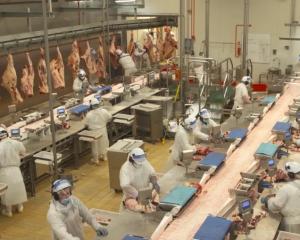
A proposal to increase director fees gained little support among farmers during Beef + Lamb New Zealand’s (B+LNZ) annual meeting in Nelson.
Chairwoman Kate Acland said the result had to be respected.
"We recognise it’s extremely tough on farm at the moment and believe this has been reflected in the voting outcome. However, the fact remains that B+LNZ’s director fees are well below industry benchmarks."
She said the result showed there were some farmers who would be comfortable with a rise in fees now, but that was not the case for the majority of them.
"So we’ll pick this up again when the time is right."
The sought-after fee rise obtained 34.23% support with 65.68% against, among the nearly 1500 farmers voting. Another 50-odd abstained.
Getting well past the line was the resolution to appoint KPMG as an auditor. However, a bunch of farmer remits had hit-and-miss results.
Two farmer proposals were supported and passed and another got through by a whisker, but two others failed to get the go-ahead.
A call by farmer Neil Henderson to get B+LNZ to work towards dispelling the myth that New Zealand livestock were causing significant global warming, requiring the need for emissions reductions, was passed — 65.84% were in favour and 33.75% against.
Similarly, a remit by Jason Barrier was passed with 59.86% votes in favour for B+LNZ to establish a unified position for the sheep and beef sector before entering into further emissions talks with the government.
Narrowly passed with just 50.65% of voting in favour was a remit by farmer Helen Mandeno that levy-payer consensus be gained before B+LNZ supports and advances policies potentially undermining the value of beef and lamb marketing advantages such as "pure, natural, grass-fed and non-GE" reputation.
Failing to cross the line was an attempt for B+LNZ to justify and provide a cost-benefit analysis for the creation of a complex methane trait index that has no obvious economic driver.
Also missing out was a proposal for any remit gaining greater than 70% support of levy payers to automatically becoming binding to the board.
Mrs Acland said the board would discuss the results and feedback received at the annual meeting at next month’s board meeting.
She said the board’s positions largely aligned with the remits that were supported, but it would consider whether any further action was required.
The low voter turnout of 12% of registered sheep, beef and dairy farmers was "hugely" disappointing, she said.
"We appreciate it’s an incredibly busy time on farm and farmers are facing significant challenges, particularly around profitability. However, it’s important that farmers have their say on the running of their levy-funded organisation."














